I'm trying to host multiple services using one WcfFacility and IIS, and I'm seeing some confusing results.
Here is my configuration:
var baseUri = new Uri(HttpContext.Current.Request.Url.GetComponents(UriComponents.SchemeAndServer, UriFormat.Unescaped));
container.AddFacility<WcfFacility>(f => { f.CloseTimeout = TimeSpan.Zero; }).Register(
Component.For<IAttributeService>()
.ImplementedBy<AttributeService>()
.AsWcfService(
new DefaultServiceModel()
.Hosted()
.AddEndpoints(
WcfEndpoint.ForContract<IAttributeService>().BoundTo(new BasicHttpBinding()).At("Soap11"),
WcfEndpoint.ForContract<IAttributeService>().BoundTo(new WSHttpBinding()).At("Soap12")
)
.AddBaseAddresses(new Uri(baseUri, "AttributeService.svc"))
),
Component.For<ISessionService>()
.ImplementedBy<SessionService>()
.AsWcfService(
new DefaultServiceModel()
.Hosted()
.AddEndpoints(
WcfEndpoint.ForContract<ISessionService>().BoundTo(new BasicHttpBinding()).At("Soap11"),
WcfEndpoint.ForContract<ISessionService>().BoundTo(new WSHttpBinding()).At("Soap12")
)
.AddBaseAddresses(new Uri(baseUri, "SessionService.svc"))
),
Component.For<ISampleService>()
.ImplementedBy<SampleService>()
.AsWcfService(
new DefaultServiceModel()
.Hosted()
.AddEndpoints(
WcfEndpoint.ForContract<ISampleService>().BoundTo(new BasicHttpBinding()).At("Soap11"),
WcfEndpoint.ForContract<ISampleService>().BoundTo(new WSHttpBinding()).At("Soap12")
)
.AddBaseAddresses(new Uri(baseUri, "SampleService.svc"))
)
);
When I go to use the WCF Test client to check on this, it seems as though the methods available under each service are a composite of that service and all the services that I mex'ed before that. Example:

Am I doing this wrong? You can't add the WcfFacility multiple times, and poking around on the internets, I can't seem to find an example where someone is hosting multiple services in one facility.
Any ideas?
